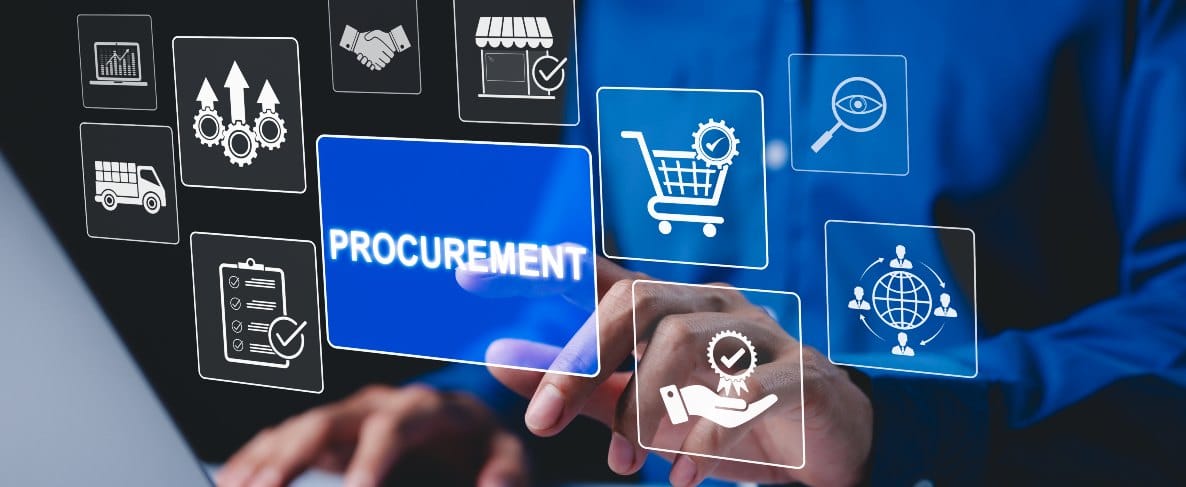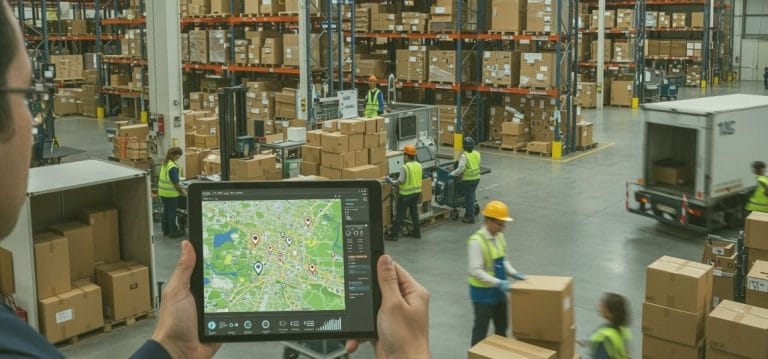
Corruption Risk & Procurement Compliance: What to Know
5 mins readHigh Stakes of Procurement Integrity
Procurement is one of the most vulnerable areas of business when it comes to corruption risk. Large budgets, complex supply chains, and the involvement of multiple stakeholders make procurement particularly susceptible to unethical practices. Whether in government projects, multinational corporations, or highly regulated industries, procurement corruption can have devastating consequences.
The financial cost is only part of the equation. Corruption in procurement undermines trust, erodes stakeholder confidence, disrupts operations, and can result in severe legal and reputational penalties. This is why procurement compliance has become a cornerstone of corporate governance. Strong compliance frameworks help organizations reduce risk, strengthen transparency, and ensure fair supplier relationships.
For procurement professionals, understanding both corruption risks and compliance measures is critical. By embedding ethical practices into procurement functions, organizations can not only avoid risks but also build long-term resilience and credibility.
Understanding Corruption Risks in Procurement
Procurement corruption takes many forms, often hidden within everyday transactions. Recognizing these risks is the first step toward building effective safeguards.
Common Forms of Procurement Corruption
- Bribery and kickbacks – offering or accepting money, gifts, or favors in exchange for awarding contracts.
- Bid rigging – collusion between suppliers or internal staff to manipulate competitive bidding.
- Conflicts of interest – when personal or financial interests influence procurement decisions.
- Favoritism or nepotism – awarding contracts based on relationships rather than merit.
- Fraudulent invoicing or overbilling – suppliers inflating costs or billing for services not delivered.
Why Procurement Is Susceptible to Corruption
- Large budgets and contracts – procurement often involves significant financial transactions, creating temptation for misconduct.
- Complex supply chains – multiple tiers of suppliers make oversight difficult.
- Pressure for speed – urgent projects can lead to shortcuts in compliance.
- Multi-stakeholder involvement – decisions influenced by multiple parties increase risks of collusion.
Globally, procurement corruption is a major challenge. According to the World Bank, public procurement accounts for 15–30% of GDP in many countries, making it a prime target for corrupt practices.
The Role of Procurement Compliance
Procurement compliance refers to adherence to legal, regulatory, and organizational standards that govern purchasing and supplier management. It ensures that procurement is fair, transparent, and aligned with laws and ethical guidelines.
Key Anti-Corruption Regulations and Standards
- Foreign Corrupt Practices Act (FCPA) – prohibits bribery of foreign officials and mandates accurate record-keeping for companies operating in the U.S.
- UK Bribery Act – one of the strictest anti-bribery laws, applying globally to any organization connected to the UK.
- OECD Anti-Bribery Convention – international framework combating corruption in business transactions.
- Industry-specific regulations – such as defense contracting rules, pharmaceutical sourcing guidelines, and energy sector compliance standards.
These frameworks highlight the need for organizations—especially those operating internationally—to implement strong compliance systems. Failure to comply not only results in fines but can permanently damage an organization’s reputation and stakeholder trust.
How Corruption Risks Affect Organizations
Corruption in procurement is far more damaging than many leaders realize. The consequences ripple across financial, reputational, and operational dimensions:
- Financial penalties – organizations caught in procurement misconduct face hefty fines and potential contract cancellations.
- Reputational harm – corruption scandals erode trust among clients, regulators, and the public, often leading to lost opportunities.
- Operational inefficiency – corrupt practices disrupt supply chains, increase costs, and cause project delays.
- Legal liability – executives and employees involved in corruption may face prosecution, resulting in personal and corporate consequences.
- Long-term competitiveness – once credibility is lost, rebuilding supplier and stakeholder trust takes years.
For regulated industries such as pharmaceuticals, energy, and defense, the stakes are even higher—procurement corruption can compromise safety, security, and compliance with government contracts.
Best Practices for Mitigating Corruption Risks in Procurement
Addressing corruption risks requires a proactive, multi-layered approach. Organizations that prioritize compliance can transform procurement from a vulnerable function into a strategic advantage.
-
Establish Clear Procurement Policies and Codes of Ethics
Create documented policies that outline acceptable practices, ethical expectations, and anti-bribery commitments. These should apply to both employees and suppliers.
-
Ensure Transparency in Tendering and Bidding
Use open, competitive processes with clear evaluation criteria. Publish tender opportunities and ensure supplier decisions are well-documented.
-
Implement E-Procurement Systems
Digital procurement platforms improve accountability by tracking every step of the process—from requisitions to payments—making fraud or manipulation harder to conceal.
-
Conduct Supplier Due Diligence and Compliance Audits
Thoroughly vet suppliers for ethical practices, financial stability, and regulatory compliance. Regular audits ensure ongoing accountability.
-
Train Procurement Staff on Anti-Corruption Frameworks
Equip employees with knowledge of anti-bribery laws, red flags for corruption, and procedures for reporting misconduct.
-
Encourage Whistleblowing and Protect Reporting Systems
Establish secure channels for employees and suppliers to report suspicious behavior without fear of retaliation.
By integrating these best practices, organizations not only minimize risks but also foster a culture of ethical decision-making.
Challenges in Maintaining Procurement Compliance
Even with best practices, organizations face real-world challenges when implementing procurement compliance:
- Global supply chain complexity – managing compliance across multiple jurisdictions with varying regulations is a major hurdle.
- Pressure to cut costs – procurement leaders may be pushed to prioritize savings over ethical considerations.
- Digital risks – e-procurement, while useful, introduces cyber risks such as data breaches and fraudulent transactions.
- Cultural differences – practices acceptable in one region may be illegal or unethical in another, complicating global operations.
Addressing these challenges requires leadership commitment, ongoing training, and investment in compliance technology.
Turning Compliance Into a Strategic Advantage
While compliance is often viewed as a legal requirement, forward-thinking organizations see it as a strategic advantage. Companies that prioritize transparency and ethical procurement gain:
- Reputable suppliers – ethical vendors prefer working with companies that uphold integrity.
- Improved stakeholder trust – regulators, investors, and customers are more likely to engage with compliant organizations.
- Sustainable growth – aligning compliance with ESG and corporate social responsibility goals strengthens long-term value.
- Competitive differentiation – in industries where corruption is a risk, strong compliance systems set companies apart from competitors.
When compliance is embedded into procurement strategy, it goes beyond risk management it becomes a driver of corporate resilience and growth.
Recommended Training for Procurement Professionals
To build expertise in addressing corruption risks and strengthening compliance, procurement professionals can benefit from specialized training. COPEX offers a range of courses designed to equip teams with the skills and tools required to implement ethical, compliant procurement practices:
- The Complete Course on E-Procurement Course – explores digital procurement systems that enhance transparency and accountability.
- The Complete Course on E-Procurement & Purchasing Management Course – combines e-procurement techniques with purchasing strategies to ensure compliance.
- The Complete Course on Procurement & Strategy Management Course – helps align procurement practices with corporate governance and strategic goals.
- Advanced Procurement Skills Course – develops advanced skills for tackling complex procurement challenges in regulated environments.
- Tendering, Procurement & Negotiation Skills Course – focuses on transparent and ethical approaches to negotiation and tendering.
These training courses empower professionals to detect corruption risks early, comply with global regulations, and foster an ethical procurement culture.
Building a Corruption-Resistant Procurement Function
Procurement is too critical to be compromised by corruption. In today’s global business landscape, organizations must recognize corruption risks and actively work to prevent them. Strong compliance frameworks, ethical leadership, and continuous training ensure that procurement operates as a driver of transparency and trust.
By adopting best practices, leveraging digital tools, and investing in training, organizations can transform procurement from a high-risk function into a strategic advantage. In regulated industries especially, where stakes are higher, embedding compliance into procurement is not just good governance it is essential for survival and long-term success.




